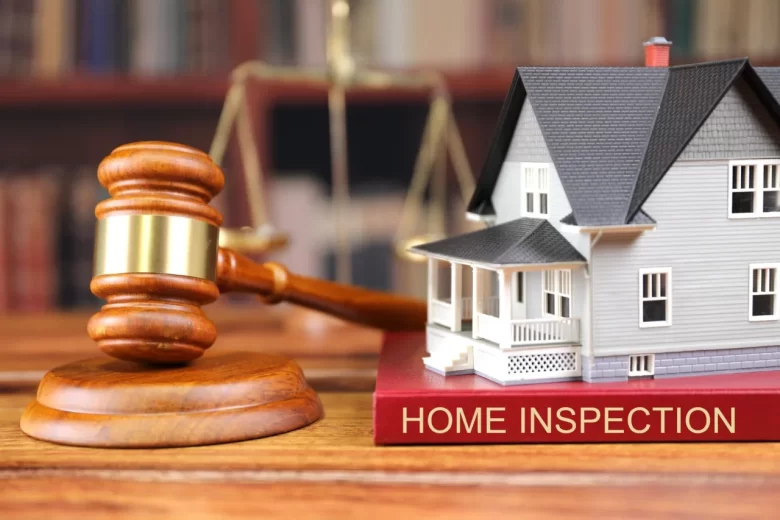Buying a home is a major investment, so keeping it safe and growing in value is the most important thing for any renter. A thorough home inspection is an important part of this process. In this guide, we’ll discuss why home inspections are important, what they entail, and how they can promote the long-term health of your home.
Why Buying a House is Important?
A home inspection is a careful examination of all mechanical and structural components of a building, giving you a complete understanding of its current condition. This process is important for many reasons, including:
- Spot Problems: A thorough inspection will reveal potential problems in the home so the owner can fix them before they get worse.
- Keeping everyone safe: Inspections identify safety hazards, such as poor wiring or weak structures, and protect everyone who lives there.
- Maintains Value: Regular inspections can help maintain and increase the value of your home by quickly identifying problems and preventing them from worsening.
What Does a Home Inspection Entail?
During an expert home inspection, the following items are usually checked:
- Structural Components: During this step, the foundation, walls, roof, and overall structural integrity of the home are inspected.
- Electrical Systems: Ensure electrical wiring, outlets, and electrical panels are safe and up to code by inspecting them.
- Plumbing Systems: Plumbing involves checking pipes, fixtures, and drains for leaks or damage caused by water.
- HVAC Systems: Heating, ventilation, and air conditioning (HVAC) systems are tested to see how well they work and how efficiently they operate.
- Roof and attic: Check the condition of the roof, including shingles and any leaks, as well as the attic space.
- Appliances: Test household appliances that come with the home and check their condition.
Conduct a Home Inspection
- When hiring a professional: Hire a licensed and certified home inspector to ensure the inspection is thorough and fair.
- Attend an inspection: If possible, attend an inspection to learn more about the process and ask questions about problems that may arise.
- Get an in-depth report: A detailed report should include photos of what the tester found and recommendations for fixes or improvements.
More Advice for Homeowners
In addition to the usual items checked during a home inspection, homeowners who want to keep their property in good condition should also consider other things:
- Regular maintenance: Perform regular maintenance checks, such as cleaning gutters, looking for signs of exterior wear and tear, and keeping an eye on the health of your foundation.
- The Impact of Landscaping: Think about how landscaping can transform your home. Trees that are too close to homes can be dangerous during storms, and plants that grow without pruning can attract pests.
- Energy Efficiency: As part of your home inspection, you may need to undergo an energy audit. Finding homes that use too much energy can save you money in the long run and make your home more environmentally friendly.
- Water Management: Make sure your home has good drainage so water doesn’t back up and damage your floors or basement.
- Check Bugs: Look again and again for signs of termites, rodents, and other pests. Early detection can prevent serious damage to the structure of your home.
Home Inspections for Real Estate Transactions
For anyone considering buying or selling a home, a home inspection is an important part of the real estate process. Inspection reports give buyers the information they need to make informed choices, such as negotiating repairs or changing the price. When sellers solve problems before they arise, they can potentially increase the market value of their property.
Conclusion
Finally, a comprehensive home inspection is more than just one; This is an important part of being a responsible landlord. Get a complete picture of your property and resolve any issues immediately so you can make informed choices and protect your investment. Keep in mind that the cost of an inspection is very small compared to the money you may have to spend on major repairs later.
When you become a homeowner, a thorough home inspection should be your top concern. Not only does it protect your belongings, it is also a positive step toward creating a safe and comfortable home for you and your family.
FAQs
1. What is a home inspection and why is it necessary?
A home inspection is a comprehensive examination of the condition of a building, including safety, mechanical, and structural problems. It is important to identify potential problems, protect people, and maintain or increase the value of your property.
2. When should I have my home inspected?
Before you buy a house, you should have a home inspection done. This allows you to detect any problems before the transaction is completed. But people who already own a home can also benefit from frequent home inspections to detect problems early.
3. How long does a home inspection usually take?
How long a home inspection takes depends on the size and complexity of the home. The assessment usually takes two to four hours. Homes that are larger or have more complex features may require more time for a full inspection.
4. Do I have to be present during the viewing?
Although not mandatory, it is nice to be present at the inspection. It allows you to ask questions, learn more about the condition of the property, and better understand the inspector’s findings.
5. What should I do if problems are found during the inspection?
If the inspection reveals problems, don’t panic. The report sets out the steps that need to be taken. Buyers can discuss repairs with sellers and existing homes can use the report to quickly resolve issues.
6. How often should I have my home inspected?
A good rule of thumb for homeowners is to have a full inspection every three to five years, even if nothing appears to be wrong. An appraisal is important for anyone selling or buying a home before the deal is finalized.



